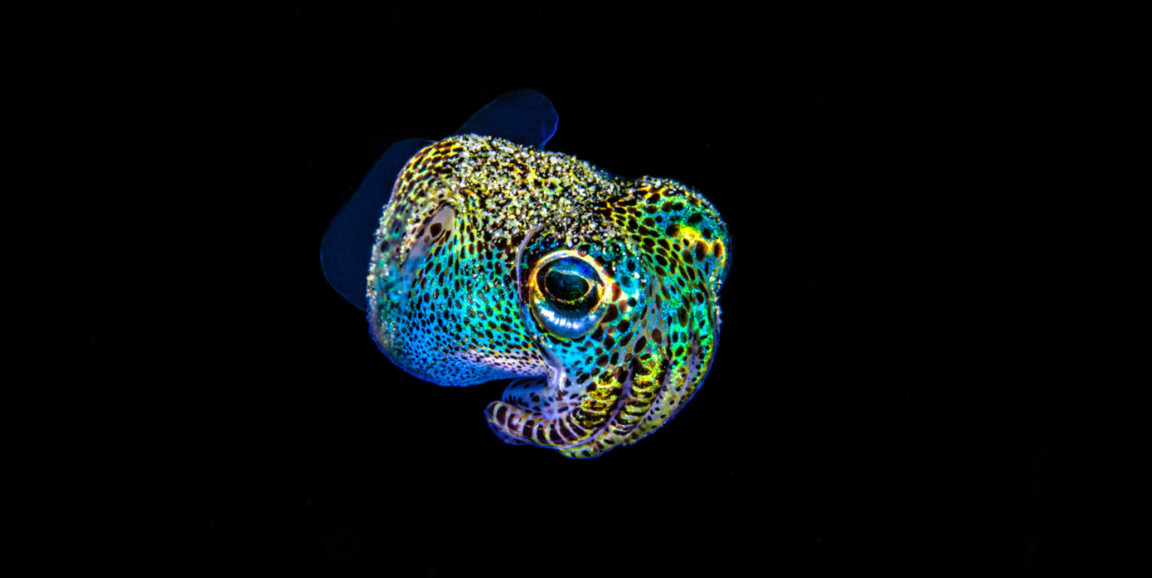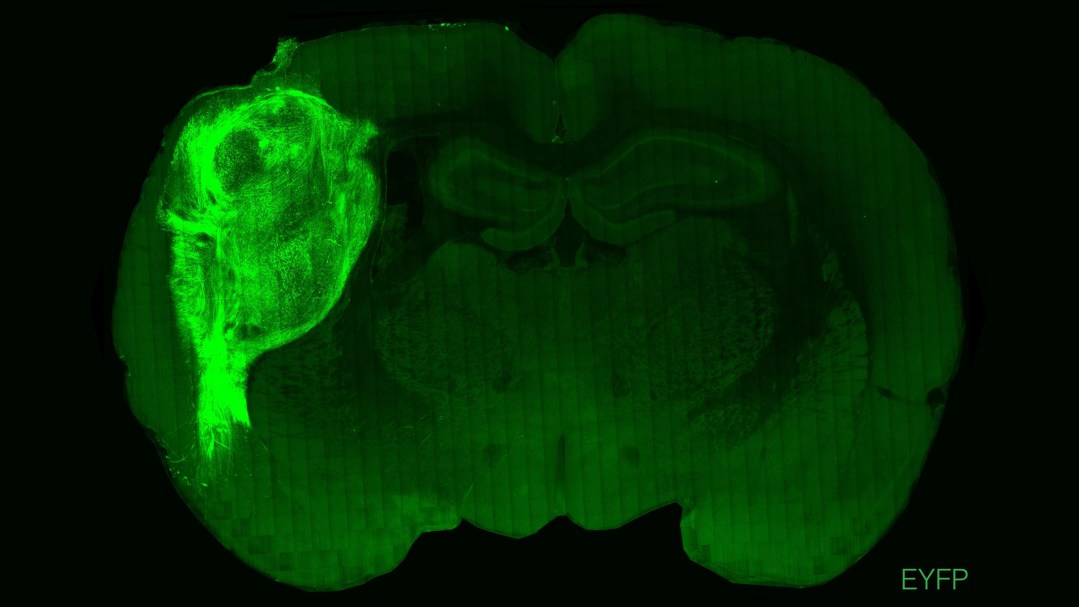Hanae Armitage – Stanford Medicine
If you ask me, there’s nothing quite so weird and wonderful as a cuttlefish. Or a squid. Or an octopus. Basically, the whole cephalopod gang. Maybe it’s their gangly, elegant appendages, or their sleek, streamlined bodies gliding through the water, or perhaps their impressive ability to change color, matching the hues around them.
To Matt McCoy, a postdoctoral researcher in the lab of Nobel laureate Andrew Fire, PhD, one among them stands out: the bobtail squid. Squishy and the size of a thimble, these little marine creatures are as cute as they come. But they’re more than just lovable sea blobs. Their nervous systems may harbor clues to some fundamental truths about the evolution of intelligence.
Rachel Grant, a former Stanford Medicine neuroscience graduate student, spoke to McCoy, an Interdisciplinary Postdoctoral Scholar who is investigating genes that underpin nervous system evolution to learn more about bobtail squids and how they might inform our understanding of human diseases.




